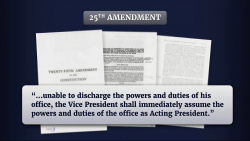Denying authorization to Chevron and other American oil companies in Venezuela will only create a vacuum that will be filled by countries hostile to the United States.
On May 27, the American oil company Chevron ceased its operations in Venezuela. However, the oil company will continue to hold a narrow authorization that excludes the operation of oilfields in Venezuela and the export of oil.
The conventional wisdom is that such measures will increase economic pressure on the Maduro regime. And hopefully, the government may collapse one day. The problem with that policy is that unsavory countries could fill the vacuum left by Chevron. Those countries may not only compensate the Maduro government for its losses but also impact the region’s geopolitics to the detriment of other Latin American neighbors and the United States.
For example, what once was an operation run by Exxon Mobil in the Orinoco Belt is now owned by a state-owned Russian company. Russia has been an ally of the Venezuelan government and a key partner in helping the South American country avoid the impact of sanctions. Russian companies have helped the state-run oil firm PDVSA maintain oil production in response to US sanctions.
Russian oil dealings with Venezuela include joint ventures, acquisitions, investments, loans, debt rescheduling, oil field allocations, crude oil trade, and cooperation agreements. Russia has also facilitated the export of Venezuelan crude oil by selling the oil to China and India and transporting it via ghost tankers to skirt US sanctions. The Russian state is also involved in Venezuela’s oil production through joint ventures. Such economic activities have contributed to strengthening the Maduro regime.
China is another country that is contributing effort to save the current Venezuelan regime. Chinese companies are also involved in oil production and in purchasing Venezuelan oil, violating US sanctions. These operations include billions of dollars in commerce. Likewise, Venezuelan exports shipped to China have been rebranded as Brazilian oil to avoid public scrutiny and international outrage. Independent refiners in China are the main buyers of oil shipments from the countries that have been sanctioned by the United States: Venezuela and Iran.
This week, Iranian Parliament Speaker Mohammad Baqer Qalibaf kicked off a Latin American tour in Caracas this week,resolving to “expand all-out ties” and calling for a shift to “non-dollar currencies,” as well as using BRICS Pay in bilateral trade transactions. Iran is already an important Venezuelan ally, and it was instrumental in keeping oil production going by providing key diluents to Venezuela’s state oil company when “maximum pressure” sanctions were imposed during the first Trump administration.
Under a multimillion-dollar contract, the National Iranian Petroleum Engineering and Construction Company has committed to repairing Venezuela’s largest refining complex. Additionally, the Islamic Republic has signed contracts with Venezuela to build ships, which supposedly would be used to transport oil.
Regime change in Venezuela is vital for the region’s stability and for the security of the United States. Sanctions have not only proven ineffective, but they have actually pushed Venezuela to strengthen ties with other US adversaries to successfully evade them. Therefore, it is essential to think about other strategies.
We are not necessarily talking about a military operation to decapitate the regime. Under the first Trump administration, there was an attempt to remove the regime by co-opting the military. The Venezuelan military is the backbone of the regime, as the Venezuelan government has co-opted it to secure its loyalty and the regime’s protection. Like every authoritarian regime, right or left (e.g., Franco, Pinochet, and Fidel Castro), Hugo Chavez and then Nicolás Maduro distrusted the military and subjected its members to surveillance.
In April 2019, the Venezuelan opposition attempted to recruit members of the military and others close to the Maduro government, but Maduro soon discovered the plot, and the plan failed. Such an attempt was a joint operation between the Venezuelan opposition and the first Trump administration.
According to a recent report by intelligence journalist Zack Dorfman, the Central Intelligence Agency (CIA) created a task force that managed to carry out a cyberattack on the state-administered payroll system that paid the military. The idea was to promote discontent and push the military to the opposition, led by Juan Guaidó. The idea was also to convince other regime supporters to join the opposition.
The CIA was reluctant to adopt a too-aggressive attitude toward Venezuela, even though some Trump administration officials were in favor of conducting sabotage operations within Venezuela. However, the intelligence establishment and the Pentagon opposed this type of operation. The principal officer lobbying for some action against the Maduro regime was then-National Security Advisor John Bolton.
The plan failed because of divisions among opposition leaders. There were also no mass military desertions, as was expected. Maduro discovered the plot on time and managed to rally his supporters. According to former American officials, “If the CIA had intervened more forcefully between January and April [2019] — when schisms within the military and among other Venezuelan elites were the biggest, and Guaidó had the most momentum—it might have helped catalyze Maduro’s ouster.”
Bolton claimed that the CIA and intelligence agencies did not do what they were supposed to do. Likewise, the report mentioned that even President Trump never made Venezuela enough of “a priority for the rest of the national security components of the government to step up.”
I assume that one of the main reasons the coup failed was because the regime surveilled the military with Cuban help. The United States can infiltrate foreign networks and even neutralize and disrupt Venezuelan and Cuban surveillance systems, particularly when these countries’ systems possess outdated technology.
US intelligence and security agencies need to give priority to regime change in Venezuela. After the rigged Venezuelan elections in July 2024, the opposition is now even more united under the courageous and charismatic leadership of Maria Corina Machado.
Now is the time to be creative and think about alternatives. Imposing sanctions is an essential but lazy solution, particularly when we are ceding space to adversaries and foes to take over. The Trump administration should impose thoughtful and surgical sanctions and avoid broad economic ones. Denying authorization to Chevron and other American companies that are operating in Venezuela will encourage the presence of elements hostile to the United States close to our borders and also strengthen regimes that endanger the stability of the region.
About the Author: Luis Fleischman
Dr. Luis Fleischman is a professor of Sociology at Palm Beach State College and the founding co-chair of the Palm Beach Center for Democracy, a recently created think tank based in Florida. Previously, he worked for the Jewish Federation of Palm Beach County as Executive Director for community and political relations, focusing on issues related to the Middle East and national security. He has a B.A. in Political Science from Tel Aviv University and a M.A. and Ph.D. in sociology from the New School for Social Research.
Image: Shutterstock/testing

















